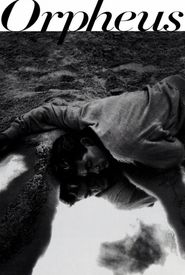Roger Blin, a celebrated French actor and director, entered the world on March 22, 1907, in the charming town of Neuilly-sur-Seine, France, to a father who was a respected doctor. As fate would have it, Blin's father had envisioned a future for his son that mirrored his own medical career, however, young Roger was inexplicably drawn to the enchanting realm of theatre from a tender age, his passion and affinity for the performing arts already beginning to take shape.
As a teenager, Blin's imagination was captivated by the avant-garde and unconventional principles of the Surrealist movement, which resonated deeply with his own sense of curiosity and creativity.
This fascination with the revolutionary ideals of Surrealism soon led him to become actively involved with left-wing theatre collectives, including The Company of Five and The October Group, during the 1930s.
Simultaneously, Blin also pursued a career as an assistant director, working closely with the renowned theatre director and playwright Antonin Artaud on his groundbreaking production of Les Cenci at the esteemed Folies-Wagrams theatre in 1935.
This opportunity to work alongside Artaud, a pioneer of the Theatre of Cruelty, allowed Blin to gain valuable experience and insight into the world of avant-garde theatre, further fueling his own artistic ambitions and creative vision.
Blin's nascent artistic trajectory was characterized by his immersion in the realm of "political street-theatre", a distinctive genre that seamlessly merged the realms of politics and performance art, thereby creating a unique and captivating synthesis. This formative period of his career was profoundly shaped by his affiliations with the enigmatic and avant-garde Surrealist movement, whose innovative and provocative aesthetic sensibilities undoubtedly left an indelible mark on his artistic development.
Throughout the tumultuous era of World War II, Pierre Blin found himself at the forefront of a pivotal endeavor, serving as a vital link between the French Resistance and the French Army. This extraordinary experience would go on to profoundly influence his worldview, particularly with regards to the intricate and often complex relationships between politics and art.
Blin's remarkable career as a multifaceted artist, encompassing both directorial and acting pursuits in the realms of film and theatre, was profoundly influenced by his enduring connections with three visionaries of 20th-century art: Antonin Artaud, Samuel Beckett, and Jean Genet. Throughout the nine-year period of Artaud's internment, Blin maintained a deeply personal and intimate relationship with the troubled artist, serving as a trusted confidant and emotional anchor. Moreover, Blin had the distinction of directing the inaugural performances of Beckett's groundbreaking plays, including the seminal Waiting For Godot, the unconventional Happy Days, and the enigmatic Endgame, thereby cementing his status as a key interpreter of the Irish playwright's innovative works.
Blin, a renowned director, took the helm for the initial performances of Jean Genet's groundbreaking plays, "The Blacks" and the provocative "The Screens". This notable collaboration has been immortalized in the published correspondence between Genet and Blin, courtesy of Editions Gallimard.
Furthermore, the 1986 publication of Samuel Beckett's "Complete Dramatic Works" bears testament to Blin's significance in the literary world, as it features three dedications in his honor. Specifically, Beckett dedicated "Endgame" to Blin, "Come and Go" to John Calder, and "Catastrophe" to the esteemed playwright Václav Havel.
Throughout the entirety of his existence, Blin steadfastly adhered to his artistic vision, masterfully combining the realms of politics, theatre, and performance art to conceive and bring forth groundbreaking and intellectually stimulating creations.
































